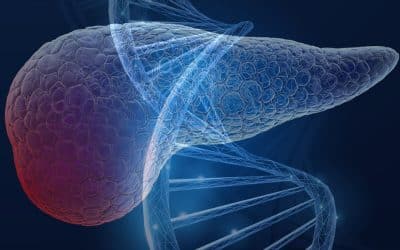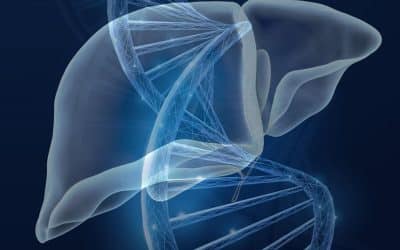Blog
A New Era in Liver Cancer Detection: The Promise of HepaAiQ
In this blog entry, we will explore the recent history, intriguing findings, and tools related to cfDNA fragmentomics.
Cell-free DNA Fragmentomics: A Promising Predictor of Cancer
In this blog entry, we will explore the recent history, intriguing findings, and tools related to cfDNA fragmentomics.
New developments in the field of circulating tumor cells (2024)
The blog post focuses on how researchers can produce more meaningful, applicable results that directly benefit human health.
Singlera technologies 5: Panseer – detecting pan-cancer signatures years before conventional diagnosis
In the last blog of the year and the concluding chapter of the Singlera series, we are going to explore PanSeer, a blood-based screening test utilizing unique methylation signatures.
Singlera Technologies 4: Catching Pancreatic Cancer early with intricate methylation markers
Enter PDACatch, a novel assay developed to detect circulating tumor DNA methylation signatures with greater sensitivity and accuracy.
Singlera technologies 3: Methylation signatures for hepatocellular carcinoma detection
Identification of DNA methylation signatures for hepatocellular carcinoma detection and microvascular invasion prediction.
Singlera technologies 2: Early detection of residual molecular disease in colorectal cancer through circulating tumor DNA methylation
This study sought to answer the question of whether longitudinal changes in ctDNA methylation are effective in monitoring disease progression from molecular residual disease to recurrence.
Singlera technologies 1: Methylation haplotyping
Identification of methylation haplotype blocks aids in the deconvolution of heterogeneous tissue samples and tumor tissue-of-origin mapping from plasma DNA. – Guo et al.Highlights Methylation...
Targeting homologous recombination deficiency in ovarian cancer
Maintaining genomic integrity and preventing cell death requires a complex network of molecular repair pathways, as DNA damage is a constantly occurring event (Frey et al., 2017). Homologous...
Circulating endothelial cells in cancer
Vascularization, a hallmark of tumorigenesis, is classically thought to occur exclusively through angiogenesis. However, there is a growing body of evidence that endothelial progenitor cells and...
Liquid biopsy in HPV-associated cervical cancer
Cervical cancer and HPV Cervical cancer is one of the most frequently diagnosed cancer types in women worldwide. According to 2020 statistics, it is the fourth leading cause of cancer death [1],...
Single-Cell Multi-omics of Circulating Tumor Cells
As oncology analytical approaches are continuously developing, cancer can be understood in deeper and more detailed ways. However, we still struggle to capture potentially important subpopulations...
Cell-free DNA and circulating tumor cells: which has more potential in precision oncology?
Many studies have demonstrated the advantages of technologies based on liquid biopsy in the genomic profiling of cancer patients. Blood-derived cell-free DNA (cfDNA)- and circulating tumor cell...
Diagnostics solutions by liquid biopsy for women with endometriosis
Liquid biopsy solutions were invented mainly for oncological diseases. In our newest blog, we look at a benign disease that could also benefit from innovative diagnostic approaches.What is...
Blood-derived biomarkers in prostate cancer
Prostate cancer (PCa) is the second most commonly occurring cancer in men, accounting for 14.1% of all male cases, and the fourth most common cancer overall (Sung et al., 2021). There were more than...
Clonal evolution monitoring in cancer with liquid biopsy
In the last part of our blog series, we will focus on the process by which subclones in tumors change over time and how liquid biopsy can be applied in monitoring clonal evolution and heterogeneity...
The role of liquid biopsy in precision medicine
In the third part of our blog series, we will discuss how liquid biopsy have revolutionized the field of precision medicine and opened up new ways in cancer management.Precision medicine in oncology...
Refining Cancer Treatment Monitoring Using Liquid Biopsy
Liquid biopsy has broad application possibilities in cancer diagnosis and patient monitoring, covering involvement in early diagnosis, prognosis as well as monitoring of therapeutic response. In the...
Tracking Minimal Residual Disease with Liquid Biopsy
In the first piece of our four-part blog series–exploring the application possibilities of liquid biopsy–, we will discuss the current horizon and future perspective of liquid biopsy-based minimal...































